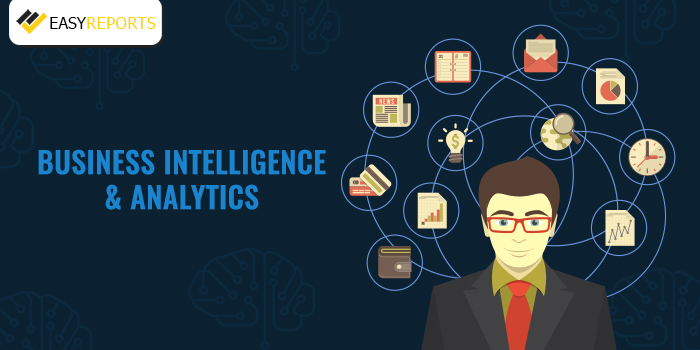July 6, 2018
Business Analytics involves using methodologies and technologies to explore company data. The goal is to extract useful insights. These insights help improve business planning and boost future performance. In other words, analytics is a function of Business Intelligence. It is a subset of broader platform capabilities. In this blog, we will discuss how Business Intelligence and Analytics can drive business growth.
Typically, Business Analytics uses statistical analysis and predictive modeling. These methods apply quantitative techniques to understand trends. They help figure out why things are happening. Additionally, predictive modeling makes educated guesses about future outcomes. In the future, businesses will have upgraded tools. These tools will enable them to get answers from their data and make informed decisions.
Any business intelligence project depends on 3 most important things: Facts, Measures and Dimensions.

The Need of Business Intelligence
Traditional business intelligence (BI) has been mostly focused on reporting. Business intelligence is increasingly becoming a strategic differentiator for today’s leading organizations. It is more of a process than a project. Collecting vital information that a business needs to run the process is essential, but it is equally painful as the data is spread across different systems, spread sheets and various sites.
Business Intelligence helps an organization in a number of ways.
- Provides business to track, understand, and manage information.
- Helps to manage expenses while protecting the core business.
- Provides guidance to executives, mid-level managers and employees
- Effortless analysis of expenses across multiple information systems
- Deciding factor in improving top line revenue growth

What Does “Business Analytics” Mean?
Business Analytics calls for approaches in methodologies and latest technologies users can use to access and explore the company’s data, with an intention to draw out new, useful insights to improve business planning and boost future performance. In other words, analytics is a function of Business Intelligence. Analytics is thus a subset of the broader platform capabilities.
Typically, this involves using statistical analysis (quantitative methods) and predictive modeling (evidence-based data for business modeling and decision making) to establish trends, figuring out why things are happening, and making an educated guess about how things will pan out in the future. In the days to come, the trend in analytics will provide the businesses with upgraded tools so that they can get all the answers related to their data and make them analysts themselves.
Need of Business Analytics
BA enables organizations to automate and optimize their business processes and also provides support for organizations in the process of making proactive tactical decisions and makes it possible for those organizations to automate decision making in order to support real-time responses.
In fact, organizations that utilize Business Analytics from data achieve a competitive advantage over their immediate rivals because they are able to use the insights for the following purposes:
- Carry out data mining (explore data to find new patterns and relationships)
- Statistical and quantitative analysis are required to explain the results behind their occurrence
- A/B testing is a very popular and state-of-the-art technique for increasing conversions and revenue. Previous decisions should be tested for results
- Ensure maximum usage of predictive modeling and analytics to forecast future results
Relationship of BI & BA
Do Business Intelligence and Business Analytics complement each other? What role do they play in deciding an organization’ future prospects?
Business Intelligence is like looking in the rear-view mirror and is required to run the business while Business Analytics is like looking in the front mirror that helps to anticipate and understand the requirement to change the business.
BI focuses on creating operational efficiency through access to real time data that enables individuals to perform their tasks effectively whereas Business Analytics relates to the exploration of historical data across many sources through statistical analysis, quantitative analysis, data mining and predictive modeling and at the same time helps us in identifying the trends and make the information easy to understand that can drive change and support the business across successful heights.
Business Intelligence is referred to as platform that helps to access data, manage metadata, development tools for reports, dashboards, and applications, and publishing, scheduling and distribution capabilities while Analytics is referred to as either methods of analyzing information or the tools to perform those methods. For more visit our website on www.easyreports.in
